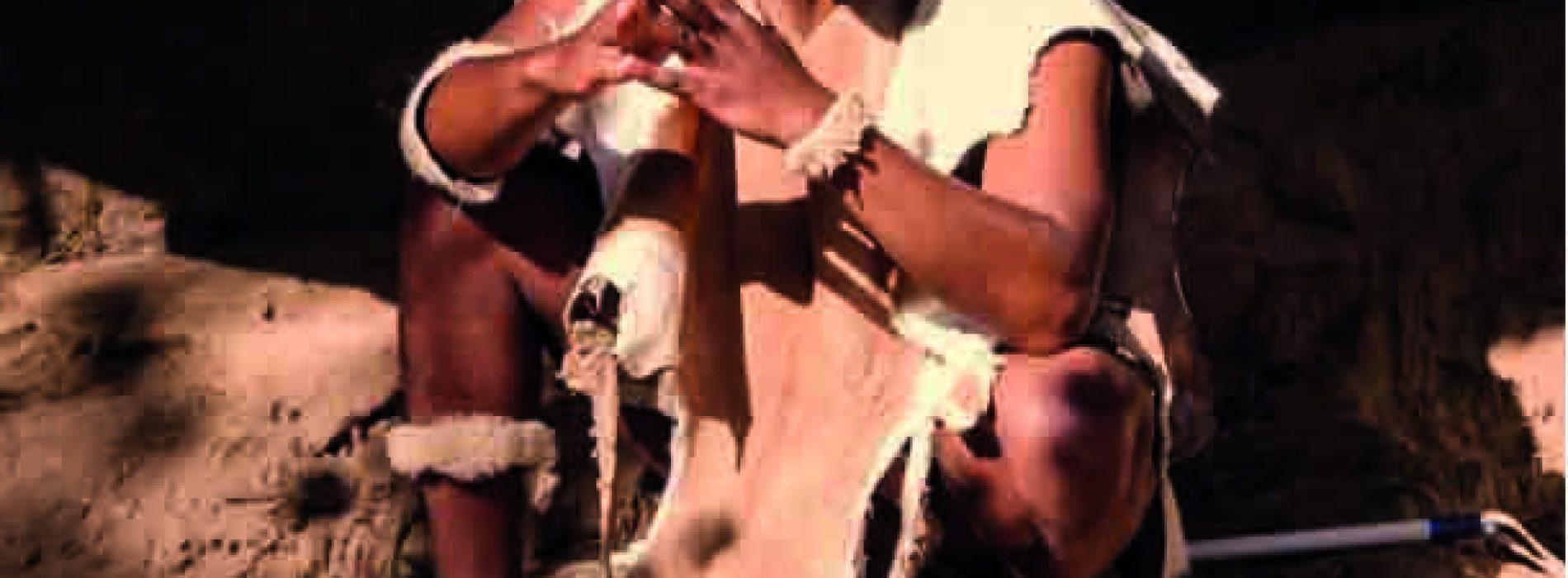Africa-Press – Lesotho. COME, make a circle around me, sit down and hear me, oh children of the same pouch. ”
This is how Thaabe Lelosa, praise-poet and singer popularly known as Thari-ea Tšephe (pouch made of eland skin), introduces himself to Sesotho poetry followers whom he refers to as “children of the same pouch”.
The imagery of the Basotho nation carried by a single mother on her back in the same pouch made of eland skin is the nub of Lelosa’s songs, which are highly blended with Sesotho praise poetry.
The 29-year-old Lelosa’s new hit song, Phato, released to mark Basotho’s traditional first month of the year (August), is the epitome of how the Sesotho musician is blending traditional music with modern styles to adequately portray the changing culture of Basotho.
In the song, Lelosa eloquently conjures up the nostalgic memories of Basotho people as they drive oxen to the fields to till the land for summer cropping.
“Ntho ena ke Phato ea makoatle pulula marole (This is August of puffs of dust, blower of dust).
” This is Lelosa as he interjects with the poem’s first stanza, just as the harmonious interaction of supporting vocalists is about to end the first part of the song.
Lelosa’s music, highly blended with original Basotho praise poetry, brings values articulately prepared for a modern-day Mosotho but seeking to instil in the listener the identity of the Mosotho of the past.
The image displayed in the Phato song is that of men in the old Lesotho of Moshoeshoe as they prepare farming implements in the morning, in a village nestled on the slope of a mountain.
The men are seen early at dawn driving their oxen to the fields. Behind them is the sequence of clouds of dust from animals’ hoofs, raised to the sky by the strong winds of August.
A social anthropologist who taught in Lesotho decades ago, Robin Wells, had this to say about the Sesotho language regarding its harmony in poetry and song:
“The nature of Sesotho language itself affords the potential for a richly rhythmical poetry through its system of grammatical agreement.
The majority of noun classes in Sesotho demand concords in the adjectival case which are phonetically similar to the noun prefix. ”
This quality is exhibited in Lelosa’s songs.
Leveraging on the language that is itself musical, he sings Phato in a simple but richly used Sesotho language. “Liphali li tla jabela lipholo ka mahetleng (whips will beat oxen on the shoulders),” he goes.
But now the focus is on the use of language. The prefixes ‘li’ in liphali (whips) li tla (will) and lipholo (oxen) make a sound in the song that gives it that needed elements before Lelosa ushers in the next stanza in the poem.
Thari-ea-Tšephe, his self-given music name, officially released the Phato album this week, the first under his newly-found troupe Bana ba Thari (Children of the same pouch or the same womb) and it is already trending in the market.
The album is meant to celebrate the beginning of the Basotho year, the festive season and to embrace the Sesotho culture and values. Lelosa’s followers had been long waiting for the release of Phato after teasers ran on many local radio stations, ‘tickling’ ears with the harmoniously joined together melodies and deep, but simple Sesotho poetry.
The record is a follow-up to his 2015 self-titled EP and marks the release of the first single from the album, Phato. Lelosa deems himself the legitimate heir of the lithoko or praise poetry tribe, a passionate artist with praise poetry uniquely infused in AfroJazz music — a culture-driven style.
He recorded all of Bana Ba Thari album tracks in BK’s studio in Maseru, working with SaMoqhRa as his producer. The album features musical giants such as Tlali-Mothoana, Thaathe, and melodious female, Mosimoli.
The bass guitarist, Mega, proved his skill on songs like Phato, Litau, and Lesotho. Bana Ba Thari is composed of 10 tracks that Lelosa wrote over just one month.
Throughout this new album, his relaxing praise poetry style remains present yet matured, with a more refined worldview. Having successfully completed the album, Lelosa and his team will now sell the album through flash drives encrypted to be non-rewritable.
Lelosa told thepost that “in this way it will be difficult, if not impossible, for pirates to steal my music”. “This is because we now live in the modern world where CD’s are slowly fading away,” he said.
“Truly, we didn’t expect the whole album to turn out so well, especially having in mind that we have been recording it in the midst of Covid,” he said in a statement released earlier.
“The new songs are inspired by some great life-changing events in my life, including a glimpse to my past – my real roots.
”
While each song varies in tone, they all are originals and circle back to one universal theme.
“Bana Ba Thari is a poetry-filled, catchy collection of reminders that our cultural roots, love, harmony, diversity, and unity can co-exist in our modern world”, he said.
Lelosa is not singing a ‘Sothofied’ hip-hop or RnB but Afro-jazz that is preserving the Basotho oral poetry, the lithoko or praise poems, the lifela (poems of travellers) and the liboko or family odes.
Proud of being a direct descendant of Lethole, the 18th to 19th century chief of his Makhoakhoa clan, Lelosa says his lithoko do not praise war like his forefathers did.
In those years the lithoko were inspired by the wars a chief fought and won against his enemies or those he raided their cattle. His great grandfather Lethole’s praise poem goes like this: “The shooting Lethole, the one shooting at people’s cattle while shooting he raided the pack animals.
”
It is a self-praise poem that shows how Lethole shot arrows, for in his time Basotho had no guns, at a community he attacked and raided their cattle.
Similarly, another of Lelosa’s ancestors Matela I son of Lethole who lived in the late 19th century, said in his poem: “Go and tell ’Mota (chief of the Batlokoa), that an elephant is waiting at his cattle post, it is waiting with its long sharp horns, with sharpened horns.
”
Matela showed how he was waiting at ’Mota’s cattle post to raid his livestock, his spears likened to the long, sharp horns of an elephant.
“I am proud of my ancestors who have their own praise poems,” Lelosa told thepost.
However, his own poems are not based on wars because he lives today when war is looked upon with contempt and his praise poems are rather inspired by socio-economic and political situations.
His songs are displaying the changing socio-economic-political conditions, brought by what others call civilisation while others say it is colonialism that made Africans disdain their own origins.
Lelosa blames Christianity for “the waning of appreciation of our African identity in favour of what the West regards best for mankind”. “It is Christianity that has brought all this and because of this we have lost our national identity as Africans, as Basotho,” he said, referring to every black African as a Mosotho.
He says it is high time Basotho go back to their roots and appreciate what their forefathers fought and lived for. Through song, Lelosa hopes to achieve this attitude towards Africanism.
For More News And Analysis About Lesotho Follow Africa-Press






